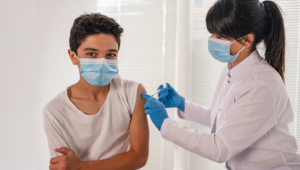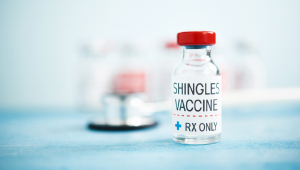Lisa A. Jackson, MD, MPH
Biography
Lisa A. Jackson, MD, MPH, is an internist and infectious disease epidemiologist who has conducted clinical and epidemiologic studies of vaccine safety and efficacy since 1991.
Dr. Jackson is the principal investigator (PI) of KPWHRI’s Vaccine and Treatment Evaluation Unit — one of 10 network sites that the National Institutes of Health (NIH) sponsors. In this role, she leads the phase 1 clinical trial of the COVID-19 vaccine co-developed by Moderna and NIH. Launched in March 2020, this trial was the first in the world to begin testing a COVID-19 vaccine. She is also leading the phase 3 clinical trials of the COVID-19 vaccines developed by Moderna and NIH and by Janssen Pharmaceutical Companies, part of Johnson & Johnson, at KPWHRI.
Additionally, Dr. Jackson serves as KPWHRI’s principal investigator in the Vaccine Safety Datalink Project (VSDP). Sponsored by the Centers for Disease Control and Prevention (CDC), VSDP conducts ongoing research on the safety of licensed vaccines in routine use.
Dr. Jackson has written more than 200 peer-reviewed publications and 14 book chapters. She is a past member of the Food and Drug Administration’s Vaccines and Related Biological Products Advisory Committee and the National Vaccine Program Office’s National Vaccine Advisory Committee.
After receiving her medical degree from the University of Virginia School of Medicine, in Charlottesville, Dr. Jackson earned her Master of Public Health (MPH) degree at the University of Washington (UW) School of Public Health. She completed her internal medicine residency training at the UW School of Medicine and served as an epidemic intelligence officer and preventive medicine resident at the CDC.
Research interests and experience
Vaccines & Infectious Diseases
Vaccine safety; COVID-19 vaccine safety and effectiveness; influenza vaccine effectiveness in the elderly; methodologic issues in vaccine effectiveness evaluations; pneumococcal polysaccharide vaccine effectiveness; pneumococcal conjugate vaccine immunogenicity in the elderly; epidemiology of E. coli bacteremia; epidemiology of community-acquired pneumonia
Recent publications
Nelson JC, Shortreed SM, Yu O, Peterson D, Baxter R, Fireman B, Lewis N, McClure D, Weintraub E, Xu S, Jackson LA. Integrating database knowledge and epidemiological design to improve the implementation of data mining methods to evaluate vaccine safety in large healthcare databases. Stat Anal Data Min. 2014;7(5):33751. PubMed
Rowhani-Rahbar A, Fireman B, Lewis E, Nordin J, Naleway A, Jacobsen SJ, Jackson LA, Tse A, Belongia EA, Hambidge SJ, Weintraub E, Baxter R, Klein NP. Effect of age on the risk of fever and seizures following immunization with measles-containing vaccines in children. JAMA Pediatr. 2013 Dec 1;167(12):1111-7. doi: 10.1001/jamapediatrics.2013.2745. Epub 2013 Oct 14. PubMed
Jackson ML, Yu O, Nelson JC, Naleway A, Belongia EA, Baxter R, Narwaney K, Jacobsen SJ, Shay DK, Jackson LA. Further evidence for bias in observational studies of influenza vaccine effectiveness: the 2009 Influenza A(H1N1) pandemic. Am J Epidemiol. 2013 Oct 15;178(8):1327-36. doi: 10.1093/aje/kwt124. Epub 2013 Aug 26. PubMed
Nelson JC, Marsh T, Lumley T, Larson EB, Jackson LA, Jackson ML; Vaccine Safety Datalink Team. Validation sampling can reduce bias in health care database studies: an illustration using influenza vaccination effectiveness. J Clin Epidemiol. 2013 Aug;66(8 Suppl):S110-21. doi: 10.1016/j.jclinepi.2013.01.015. PubMed
Jackson LA, Gurtman A, Van Cleeff M, Jansen KU, Jayawardene D, Devlin C, Scott DA, Emini EA, Gruber WC, Schmoele-Thoma B. Immunogenicity and safety of a 13-valent pneumococcal conjugate vaccine compared to a 23-valent pneumococcal polysaccharide vaccine in pneumococcal vaccine-naive adults. Vaccine. 2013 Aug2;31(35):3577-84. doi: 10.1016/j.vaccine.2013.04.085. Epub 2013 May 18. PubMed
Jackson LA, Gurtman A, Rice K, Pauksens K, Greenberg RN, Jones TR, Scott DA, Emini EA, Gruber WC, Schmoele-Thoma B. Immunogenicity and safety of a 13-valent pneumococcal conjugate vaccine in adults 70 years of age and older previously vaccinated with 23-valent pneumococcal polysaccharide vaccine. Vaccine. 2013 Aug 2;31(35):3585-93. doi: 10.1016/j.vaccine.2013.05.010. Epub 2013 May 18. PubMed
Jackson LA, Gurtman A, van Cleeff M, Frenck RW, Treanor J, Jansen KU, Scott DA, Emini EA, Gruber WC, Schmoele-Thoma B. Influence of initial vaccination with 13-valent pneumococcal conjugate vaccine or 23-valent pneumococcal polysaccharide vaccine on anti-pneumococcal responses following subsequent pneumococcal vaccination in adults 50 years and older. Vaccine. 2013 Aug 2;31(35):3594-602.doi: 10.1016/j.vaccine.2013.04.084. Epub 2013 May 18. PubMed
Weycker D, Sato R, Strutton D, Edelsberg J, Atwood M, Jackson LA. Cost-effectiveness of adult pneumococcal vaccination: Response to Grabenstein et al. Vaccine. 2013 Apr 19;31(17):2109. doi: 10.1016/j.vaccine.2013.01.008. Epub 2013 Jan 11. PubMed
Jacobson RM, Jackson LA, Reisinger K, Izu A, Odrljin T, Dull PM. Antibody persistence and response to a booster dose of a quadrivalent conjugate vaccine for meningococcal disease in adolescents. Pediatr Infect Dis J. 2013 Apr;32(4):e170-7. doi: 10.1097/INF.0b013e318279ac38. Epub 2012 Oct 3. PubMed
Jackson L, Jackson ML, Phillips, H, Benoit J. Interim adjusted estimates of seasonal influenza vaccine effectiveness - United States, February 2013 MMWR Morb Mortal Wkly Rep. February 22, 2013 / 62(07);119-123. PubMed
News

Vaccine program recruiting volunteers in Seattle area
KPWHRI’s vaccine registry was the first to enroll participants in a clinical trial of a COVID-19 vaccine.
News

Clinical trial will evaluate mpox vaccine for adolescents
The NIH-sponsored trial will help inform decisions about vaccine approval for 12- to 17-year-olds.
Research

New study confirms safety of shingles vaccine
KPWHRI researchers analyzed data from more than 640,000 vaccine doses to understand risk of severe reactions.
Research

‘Fighting back’ against COVID-19: Remembering a historic trial
Lisa Jackson, MD, MPH, Kaiser Permanente Washington senior investigator, recounts the genesis of a groundbreaking vaccine.



